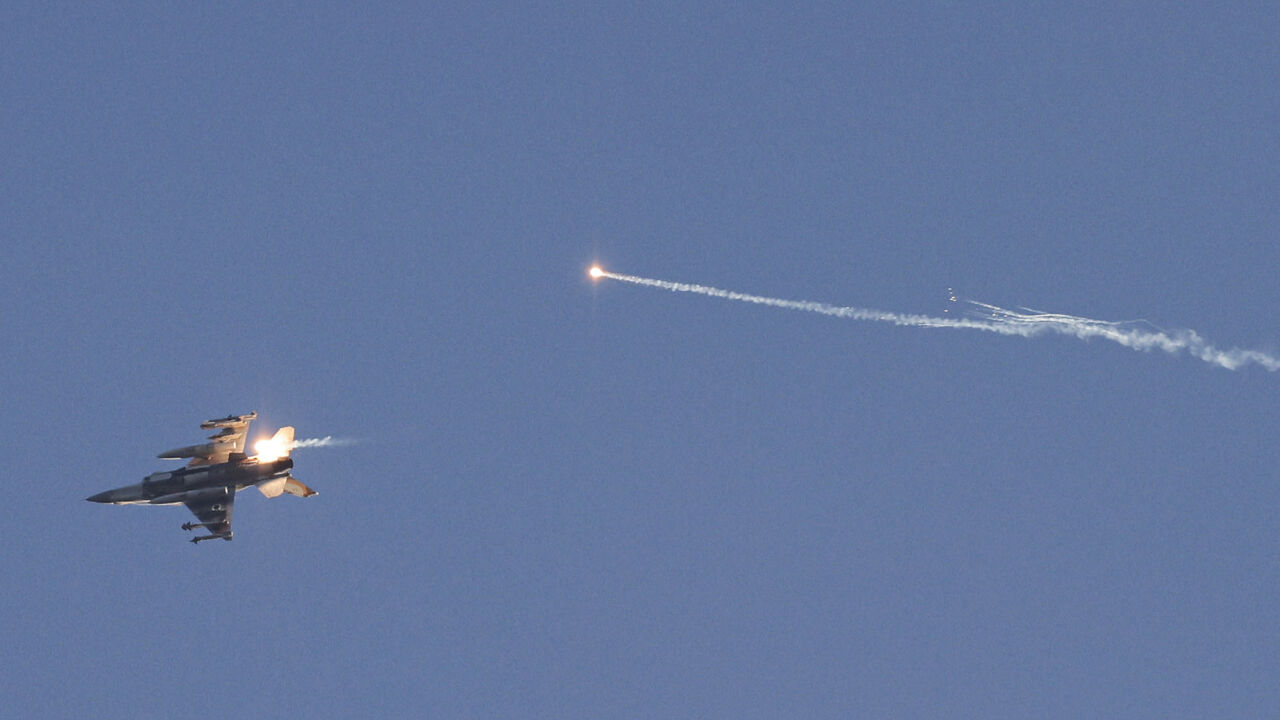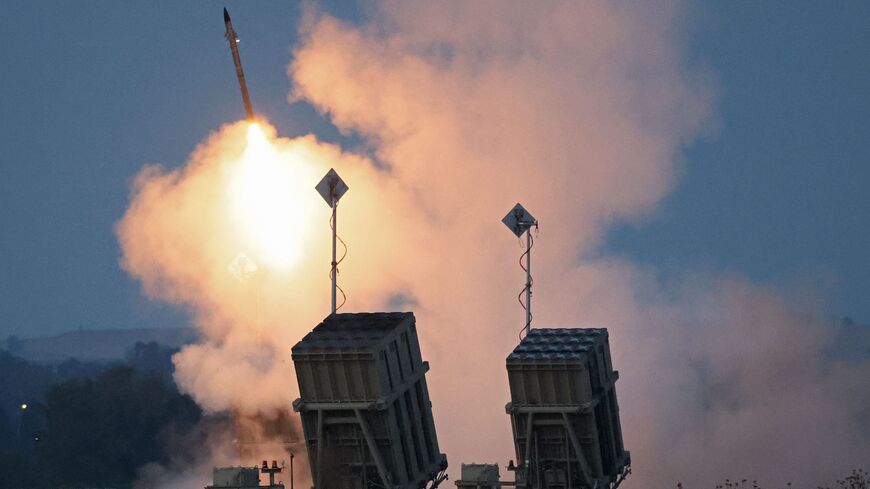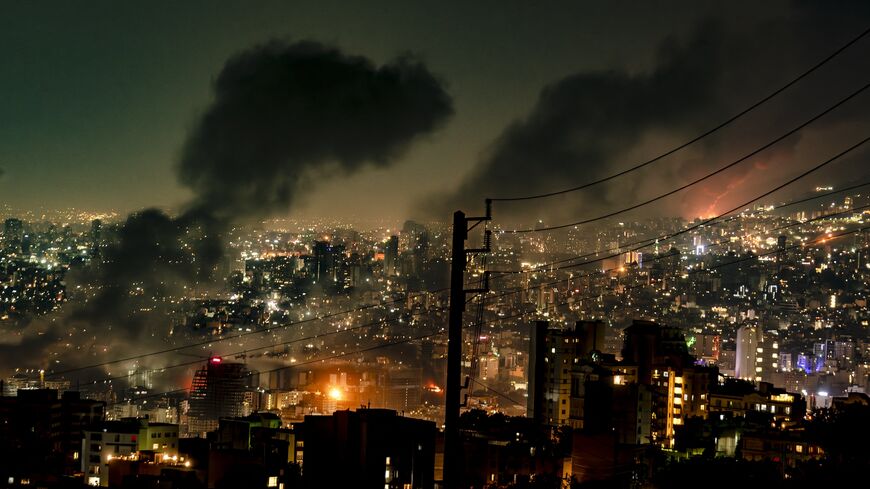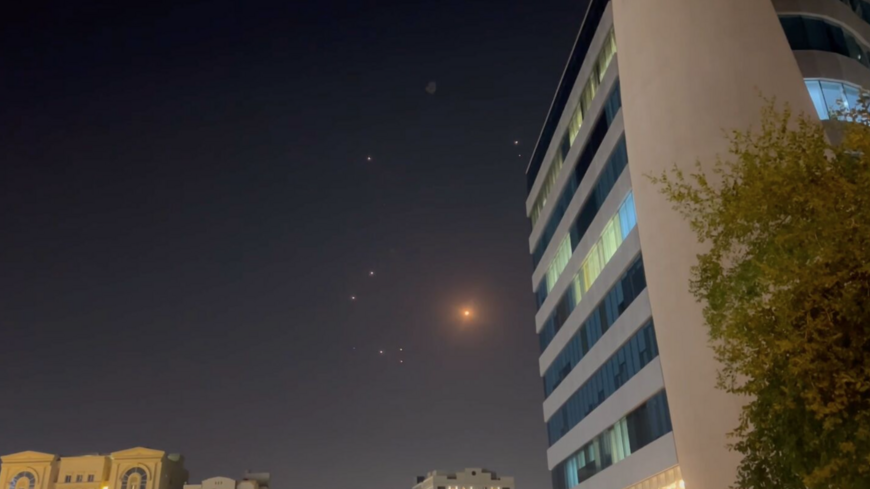Israel launches strikes in Iran in retaliation for missile attack
Israeli military spokesperson Daniel Hagari said that Israel is “striking with precision military targets in Iran.” The attack is Israel’s largest in its entire history against Iran.

Israel launched retaliatory strikes inside Iran early Saturday morning local time in retaliation for its missile attack on Oct. 1. According to Israeli authorities, the strikes hit Iranian military targets as explosions were reported across Iran.
Israeli military spokesperson Daniel Hagari said in a statement early Saturday that Israel "is now striking with precision military targets in Iran," citing attacks by "Iran against the state of Israel in recent months" as the reason for the strikes.
"The Israeli military is fully prepared" for offensive and and defensive situations, Hagari said, adding that at this stage there are no changes to homefront instructions.
🔴🎥مشاهد من تصدي الدفاعات الجوية الإيرانية لأهداف معادية في سماء #طهران pic.twitter.com/WtkAsT5wcG
— وكالة مهر للأنباء (@mehrnewsarabic) October 26, 2024
The US administration was told in advance of the attack, Israel's official news agency KAN reported.
White House National Security Council spokesperson Sean Savett said in a statement after the attack, "We understand that Israel is conducting targeted strikes against military targets in Iran as an exercise of self-defense and in response to Iran's ballistic missile attack against Israel on October 1."
What happened: Regional outlets reported that dozens of jets hit targets in the Iranian cities of Tehran, Mashhad and Karaj, where explosions had been reported. The attacks started around 2:30 am local (7:00 pm ET). Mashhad is the hometown of Iranian Supreme Leader Ali Khamenei. Karaj, a city just west of Tehran, is home to a nuclear research center.
Iranian outlets Mehr and Tasnim reported that some of the sounds heard in Iran were due to air defense activity. Iran's semi-official Fars news agency reported that the several military bases west and southwest of Tehran were targeted in the attack.
The Tasnim news agency, affiliated with Iran’s Islamic Revolutionary Guard Corps (IRGC), later reported that no IRGC centers west and southwest of Tehran were hit.
Iranian media later reported air defense activity over Tehran at around 5:00 a.m. local time on Saturday (9:30 p.m. ET Friday).
Meanwhile, the Wall Street Journal, citing a US official, reported that Israel's attack on Iran is unfolding in multiple stages and that a second round of strikes had begun. New explosions were heard in Tehran around 5:00 a.m. local time, according to AFP.
The two waves of attacks concluded around 6:30 am local time in Tehran, lasting four hours and marking the longest attack ever by Israel on Iran.
The Israeli military said at around 4:30 a.m. local time Saturday (9:30 p.m. ET Friday) that following alerts in the western Galilee region an unmanned aerial vehicle crossed over from Lebanon and fell in an open area. No casualties were recorded, according to the Israeli military.
In Syria, state news agency SANA reported that at around 2:00 a.m. local time, Israel launched strikes toward sites in the southern and central regions of Syria. SANA said that Syrian air defense systems intercepted and shot down a number of missiles, but the results of the attack are still being investigated.
Know more: Israel had vowed retaliation to Iran’s ballistic missile attack on Oct. 1, when Iran hit Israel in response to the killing of Hezbollah leader Hassan Nasrallah and IRGC commander Abbas Nilforoushan on Sept. 27.
Israeli Prime Minister Netanyahu promised that Iran would “pay” for its barrage of roughly 180 missiles on Israel, which resulted in two injuries and minor damage to civilian infrastructure and Israeli military facilities. A Palestinian man originally from Gaza was also killed in the West Bank city of Jericho.
The United States and Israel previously came to an informal agreement regarding Israel’s response, Al-Monitor’s Ben Caspit first reported, in which Washington promised to reward Israel for not striking Iranian nuclear and oil facilities – a move which would result in reverberations across the region.
The US military has also dispatched aircraft carriers and fighter jets to the region as a form of deterrence.
This is a breaking story and will be updated.







